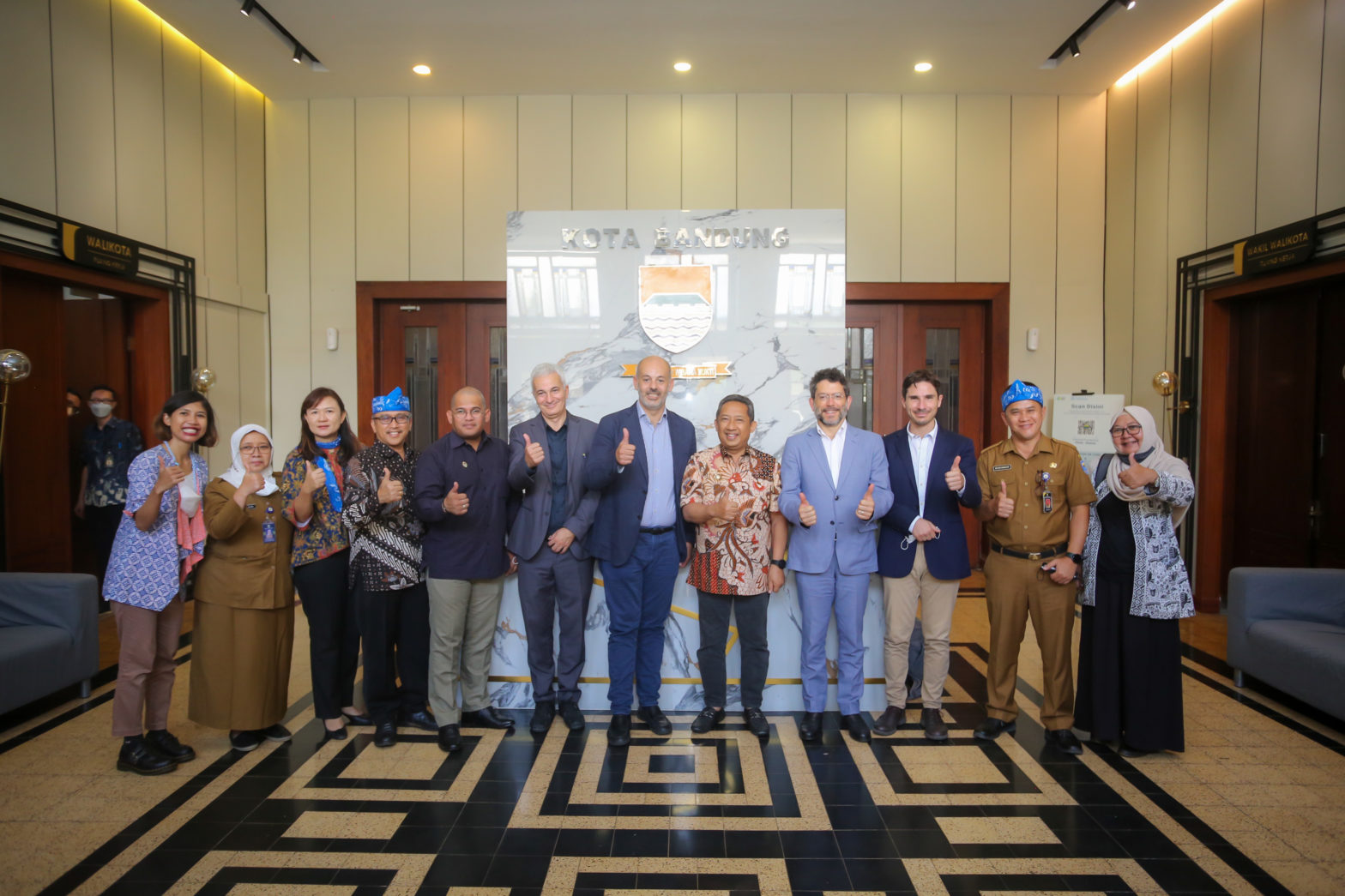25-28 October 2022
Through the IURC programme, Rome (Italy) conducted a study visit to Bandung City (Indonesia) from October 25 to 28, 2022. The delegation consisted of four officials, led by Mr. Raffaele Barbato, Director of the Strategic Planning and National Plan for Recovery and Resilience (PNRR) Department – Municipality of Rome. Representatives from other organisations joined the study visit, namely the Council for Agricultural Research and the Analysis of Agricultural Economics – CREA, represented by Mr. Giampiero Mazzocchi, and the Sapienza University of Rome – C.I.T.E.R.A, represented by Mr. Patrick Maurelli and Mr. Flavio Rosa. They were accompanied by Mr. Alwis Rustam and Mr. Teguh Ardhiwiratno, representative of APEKSI – Association of Indonesia Municipalities, and Ms. Dini Laraswati, Country Coordinator for Indonesia.
The Mayor of Bandung City, Mr. Yana Mulyana, received the delegation and highlighted the European Union’s support for the exchange of knowledge between the two cities on the main topic of sustainable urban food.
One of the solutions we’ve already implemented to increase food security at the household level is the Buruan Sae programme. Through Buruan SAE, communities farm on unused land as an alternative food production model”, he added. Meanwhile, Mr. Barbato said, “Rome has paid much attention to food. We have a big potential due to the ample availability of agricultural land within the city’s territory. Food issues are things that support sustainability, economic quality, and job creation. We are here to learn from local experiences”.
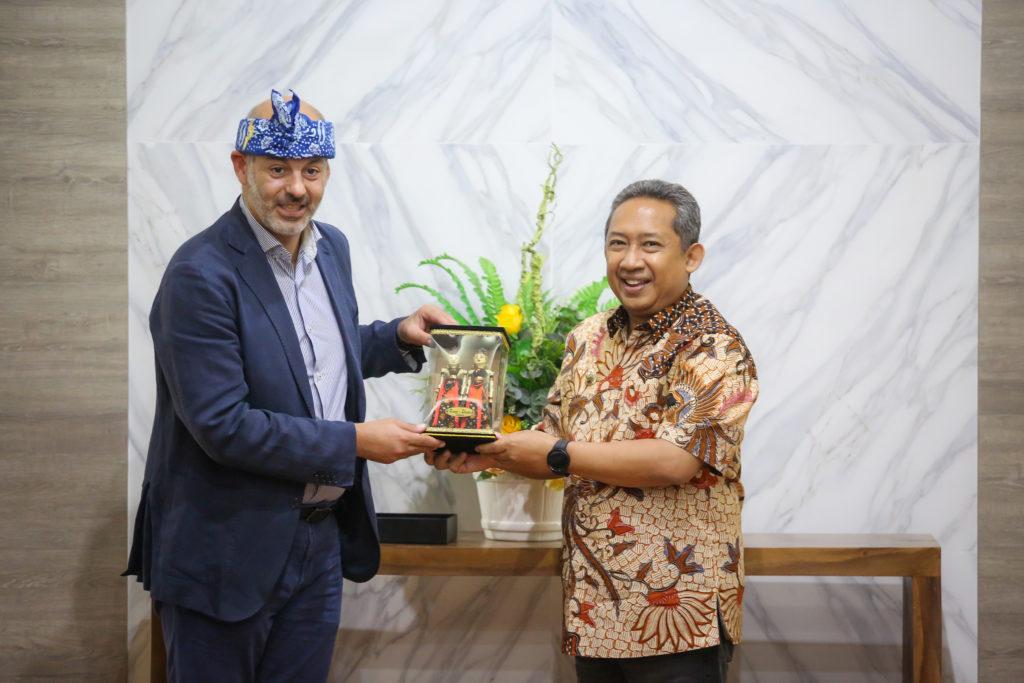
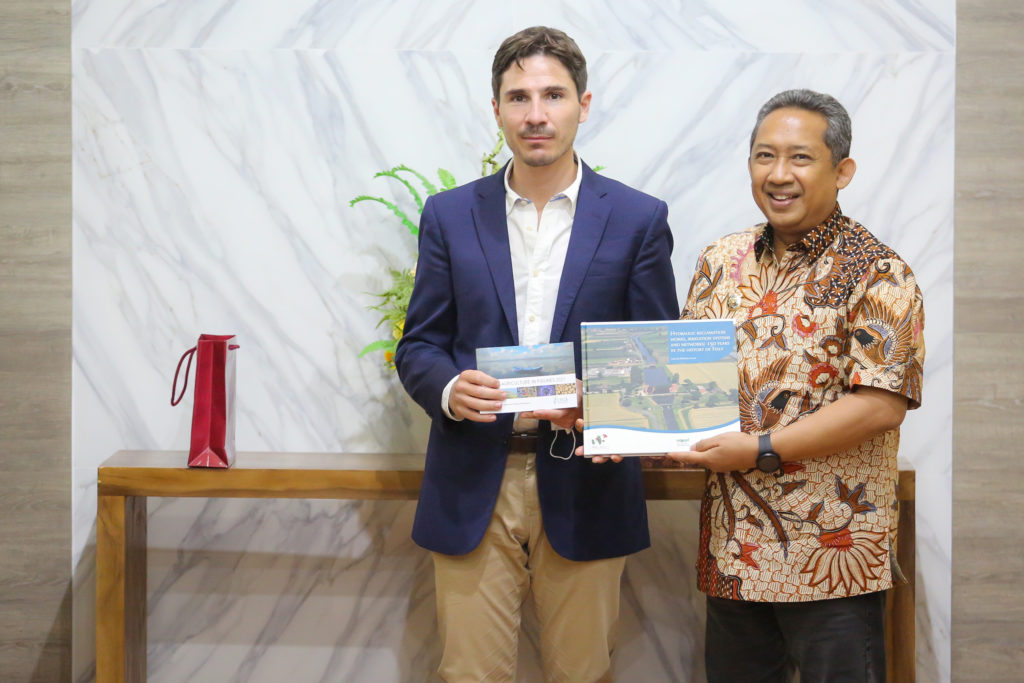
After meeting the mayor, the delegates took a city tour using an iconic Bandung Bus Tour. They paid a visit to one of Buruan SAE sites to better understand the community involvement in the urban farming practice. The garden was managed by the community service and supervised under the Food and Agriculture Department of Bandung City (DKPP). The business sector also made an important contribution through the distribution of plant seeds, provision of agriculture equipment, as well as capacity building. This urban farming practice has been linked with improved nutritional status in children and pregnant women. The sense of belonging and cooperation among the stakeholders was one of the good practices that positively impressed the Rome delegates.
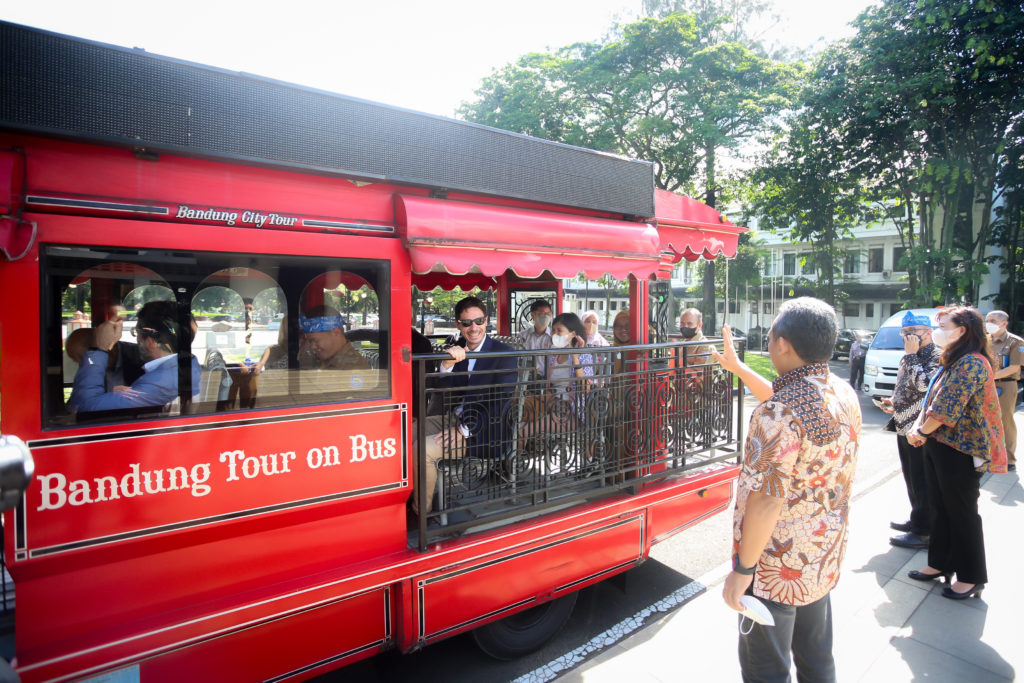
On the second day, the delegates visited an integrated urban farming site, “Sein Farm,” managed by the Bandung City government. With a panoramic mountain view, the site comprises of terraced rice field, area of horticulture crops, fish cultivation (catfish), and chicken and sheep farms. Taking advantage of the beautiful views, Sein Farm serves as an eco-tourism destination. To create a sense of ownership of the community in the surrounding area, local farmers are employed for the daily operation of the rice field. Through the land acquisition by the city government, it is hoping that urban farming can be maintained and land-use change can be avoided. On that day, we celebrated The World Food Day 2022 there, where the City made a commitment for increased tree planting.
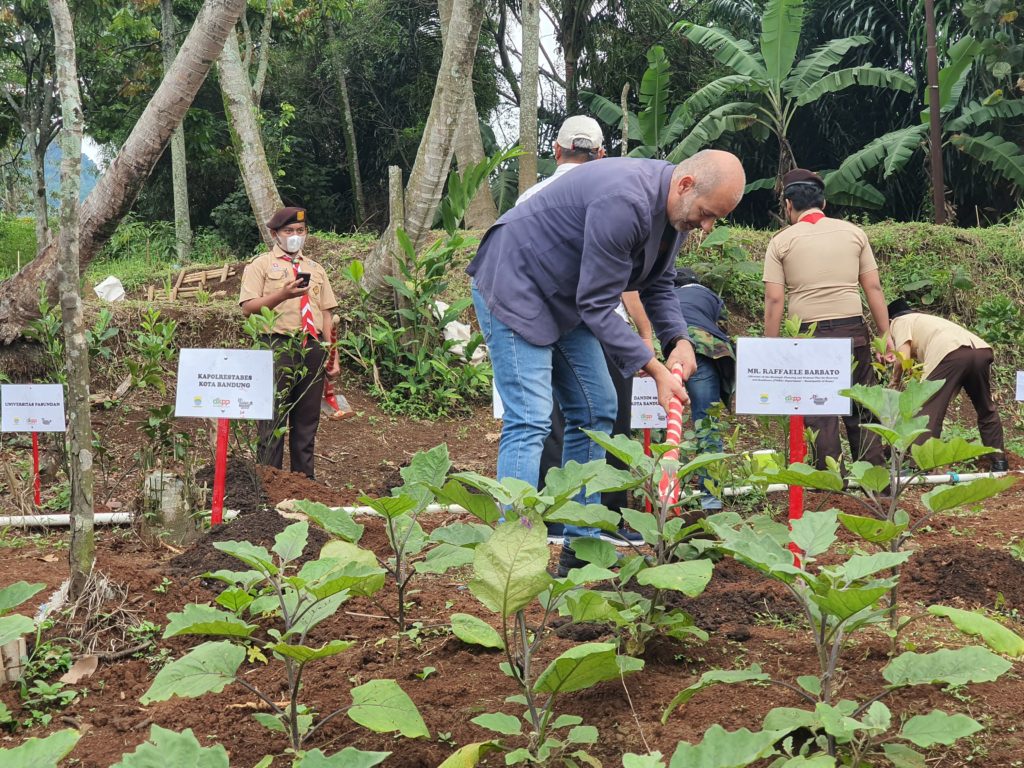
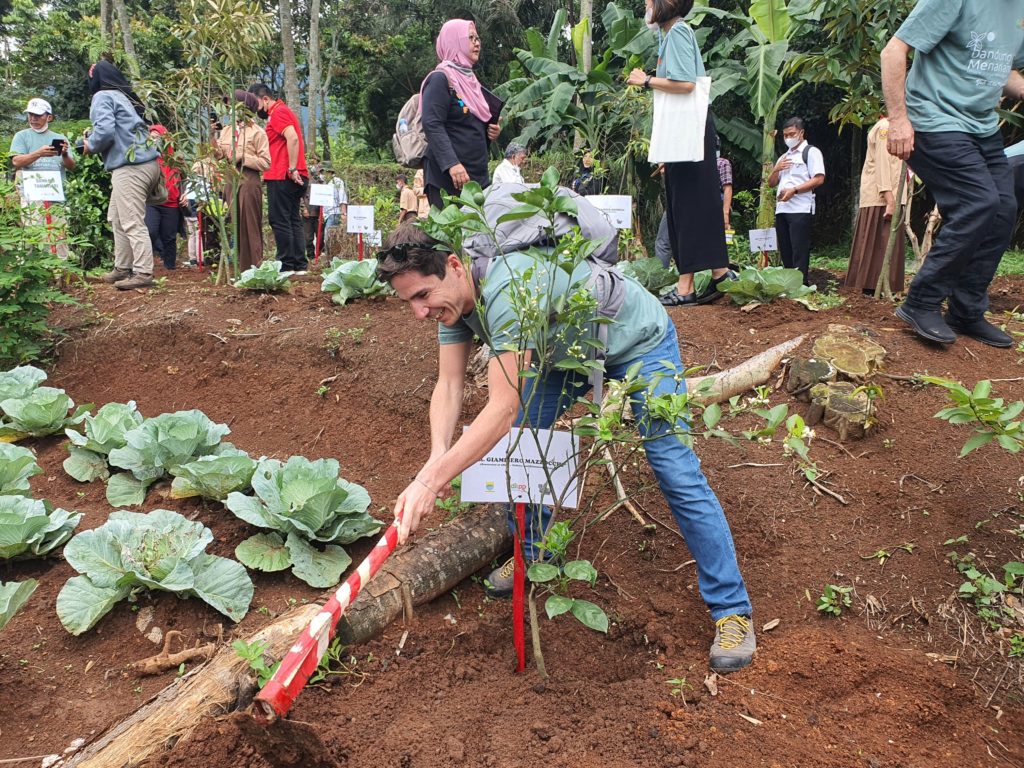
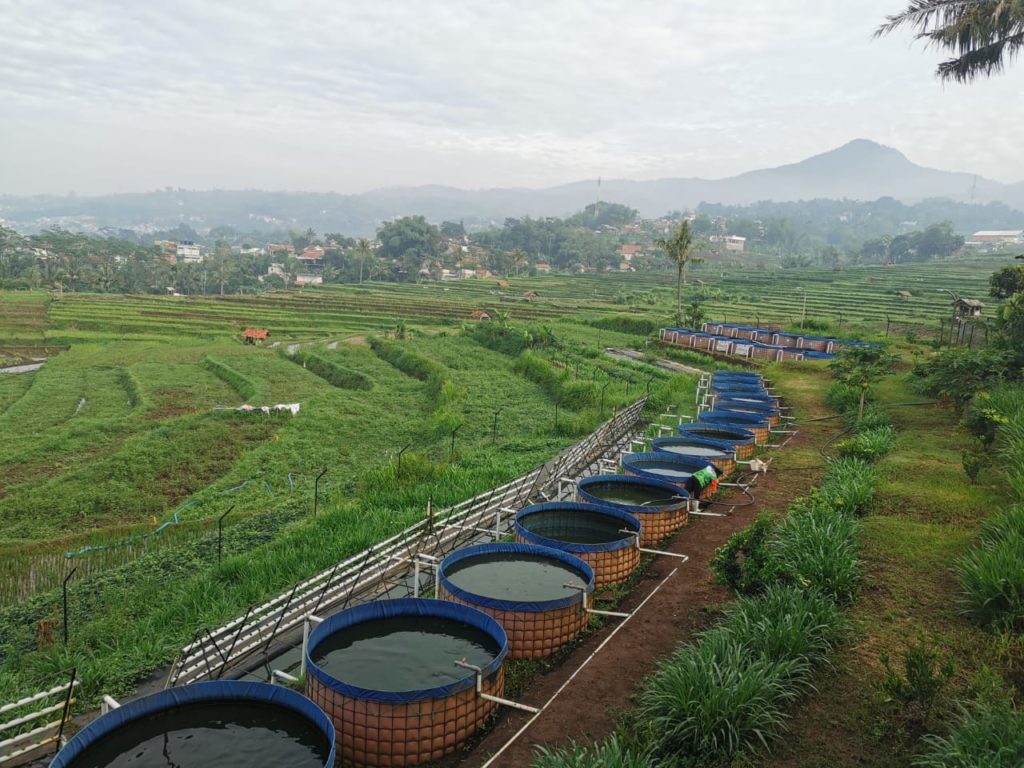
The next stop was one of Buruan SAE sites, which integrates urban farming practices and community service centres such as solid waste collection, composting centers and educational facilities. The delegates were inspired by how this community generates sustainable revenue for day-to-day operations.
Finally, the delegates from CITERA concluded the day to meet with their counterparts from the School of Electrical Engineering and Informatics of Bandung Institute of Technology (STEI ITB). The cooperation activities have been started with the participation of STEI ITB in the 3rd edition of the GIS-BIM 2022 Summer School on topic of “ the Digital Twin integrated with innovative solutions in the management of the design process of Green Infrastructure” in July. Both institutions discussed the collaboration opportunity for the 2024 summer school program on:
- Energy transition
- Environmental rural GIS-based analysis
- Digital twin tools for construction & heritage architecture innovation solutions
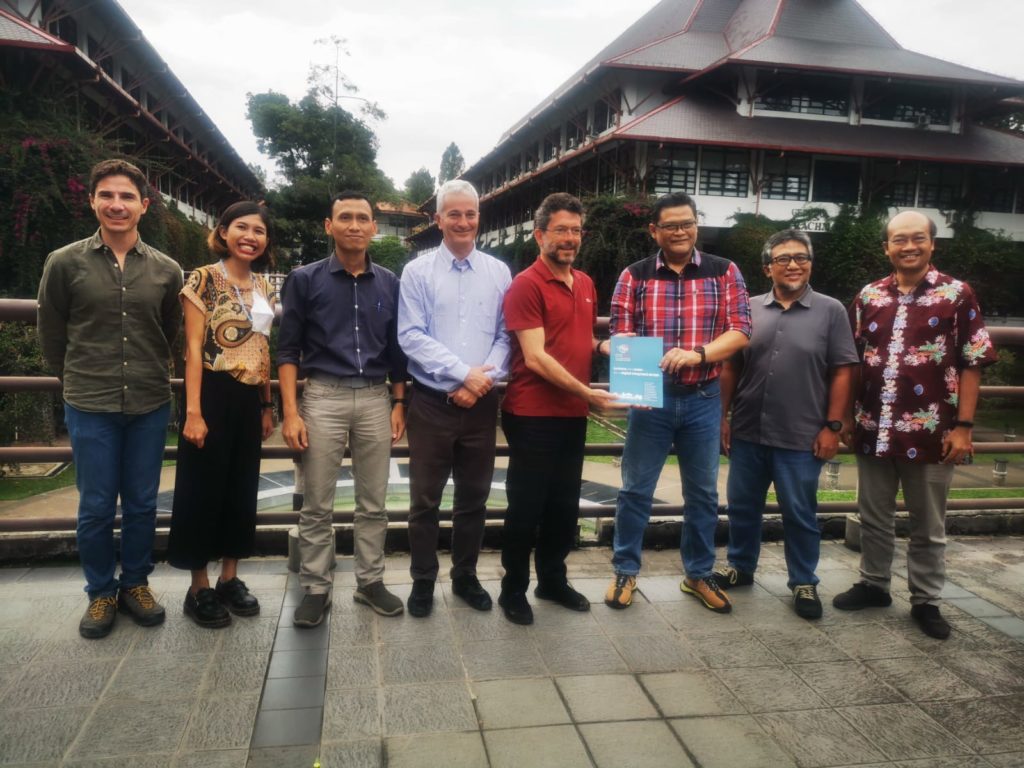
Historic buildings which are the remains of the Dutch Colonial period from the glorious past era, still exist in Bandung. These buildings can be easily recognized from their typical architectural style in which a mixture of European architecture adjusted to the country’s tropical climate. Taking this opportunity, the delegates visited Merdeka Building, as one of the historic buildings, which represents the historical values of the Asian-African Conference of 1955. They met the representative from the Bandung Society for Heritage Conservation there, and discussed the opportunity to develop a case study on digital twin solutions for the conservation of tropical heritage buildings.
The areas of cooperation for pilot projects were discussed and suggested by the DKPP, focused on scaling up the Buruan SAE program:
- Creating a sustainable business model for the Buruan SAE community
- Technology-based solutions
- Development of a database management system for Buruan SAE which currently has more than 300 spots spread across all urban villages
- The international publication mentions the Buruan SAE program. It aims to accelerate replicability as the program has been considered as an effective alternative to production in urban areas.
- Enhancing the knowledge capacity of the Buruan SAE community based on the tool used by Rome
- Raising awareness of the younger generation, and placing a focus on a strategy to force inclusion issues, i.e., engagement with disability groups
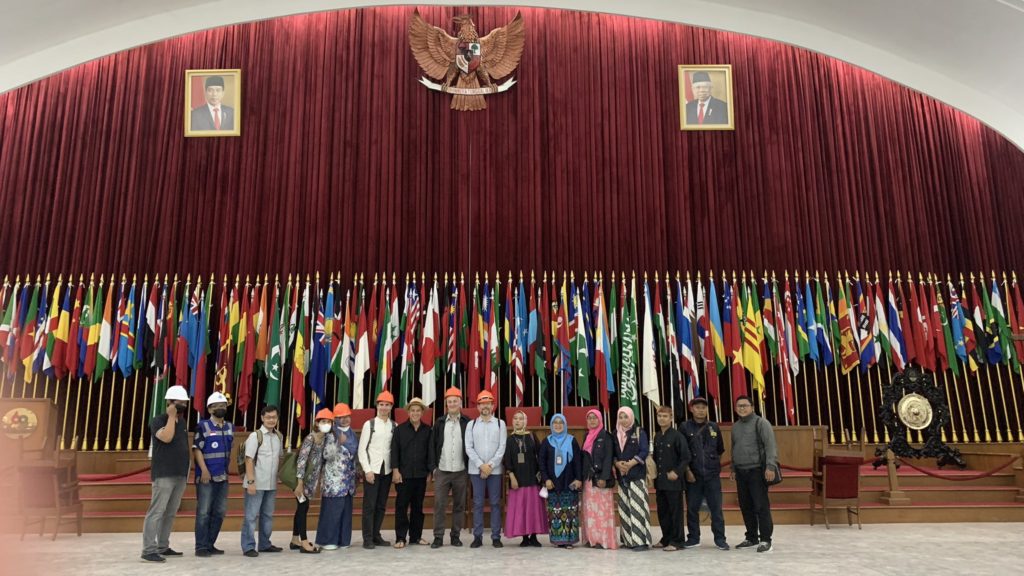
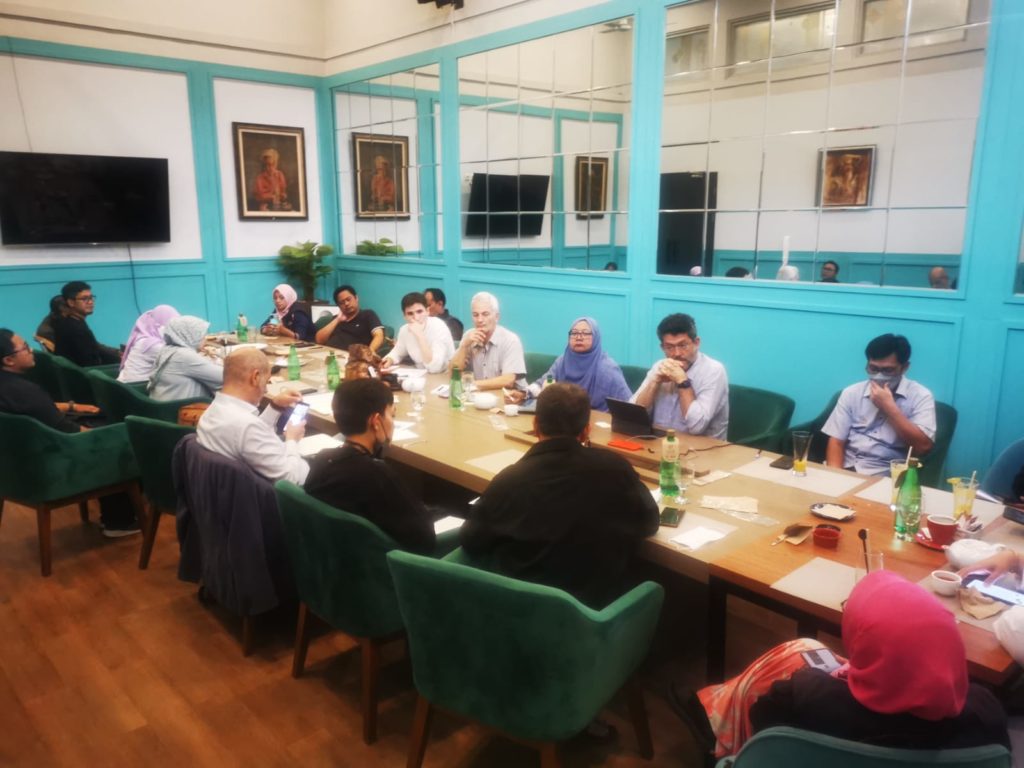
The study visit wrapped up with a cultural visit to the bamboo performance of Sundanese culture, “Saung Angklung Udjo”.
Following this visit, Bandung is scheduled to visit Rome in March next year. It will further enhance the learning between the two cities and support the implementation of identified pilot projects in the above-mentioned areas.
The Rome delegates also took the opportunity to meet Mr. Seth Van Doorn – Foreign Policy Instruments (FPI) at the EU Delegation to Indonesia – to share its views and update about the next steps in the cooperation.
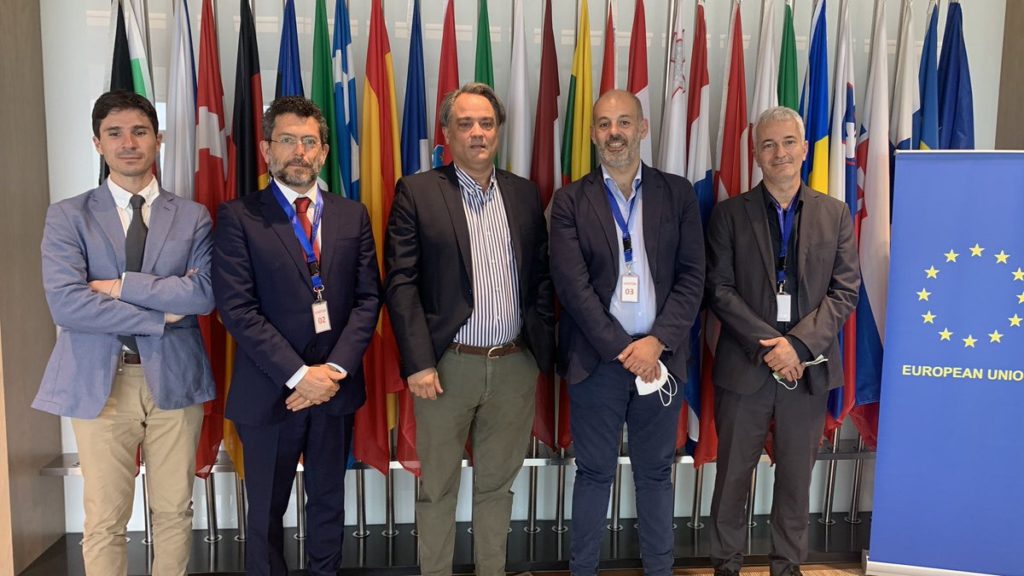
At the end of the study visit, the delegates met with Mr Giulio Marini – Deputy Head of Mission of the Italian Embassy in Jakarta – to provide the impression of the study visit.
The IURC team wishes to extend thanks to the EU Policy and Outreach Partnership (EUPOP) project in Indonesia for supporting media coverage.
Media coverage: There were 32 media reports, among which were:
- Pemkot Bandung Dan Kota Roma Jalin Kerja Sama Multi Kolaborasi (Translation: Bandung City Government and Rome City Establish Multi-Collaborative Cooperation)
- Bandung-Roma Jalin Kerja Sama Sistem Pangan Berkelanjutan (Translation: Bandung-Rome Collaborate on Sustainable Food System)
- Pemkot Bandung Ingin Belajar dari Kota Roma, Yana Mulyana Siap Berkolaborasi dengan Ibu Kota Italia (Translation: Bandung City Government Wants to Learn from the City of Rome, Yana Mulyana is Ready to Collaborate with the Italian Capital)
